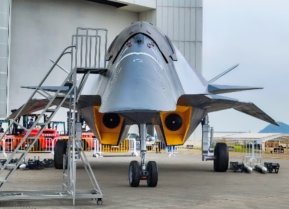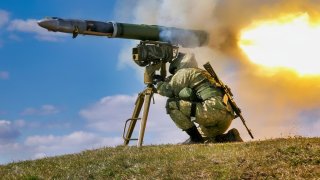Putin Would Rather North Koreans Die in Ukraine Than Russian Women
Empowering women and democratization go hand and hand, and both are dire threats to Putin. Russia’s president chose to risk the humiliation of scavenging for North Korean troops instead of manning his exhausted army with Russian women.
The Russian military has suffered staggering personnel losses in the war in Ukraine. More than 600,000 Russian soldiers have been killed, injured, or captured since the start of the full-scale invasion. The arrival of North Korean forces to Russia has been viewed as a sign of Moscow’s desperation to replenish its overstretched troops.
In the past, when extreme casualty levels exhausted the supply of recruits, Russia would deploy its women. Thousands of female soldiers served in all-female combat units during World War I. Nearly a million Soviet women were deployed in combatant and non-combatant roles during World War II.
In the context of Moscow’s criminal war, several considerations favor the enlistment of Russian servicewomen over the deployment of the North Korean troops.
First, Russia’s legislation allows mobilization of both men and women in various reserve categories, unless they meet criteria for military service determent. The legal status of the North Korean recruits is in question.
Formally, the deployment of North Korean soldiers is based on the mutual defense treaty that obliges Moscow and Pyongyang to provide any type of military assistance if either is attacked. However, North Korean troops disguised as Russian soldiers operate under the Russian military command and have already been labeled “mercenaries.”
Second, North Korean soldiers face integration challenges due to cultural and language barriers and significant differences in warfighting doctrine and training. The risk of desertion is also high for the North Korean troops. Russian women, on the other hand, train in coed units, and there are more than 40,000 enlisted servicewomen in the Russian armed forces to draw from.
Third, the Russian government itself has been warming up to the idea of recruiting Russian women to mitigate troop shortages. In 2022-2023, Russia’s Ministry of Defense signed up hundreds of female recruits from correctional facilities and penal colonies for military service, and its mercenary companies opened their combat roles to women.
Facing a similar dilemma of refilling its military ranks, Ukraine has chosen to send women fighters to the frontlines. About 50,000 women served in the Ukrainian armed forces in 2024, and more than 13,000 were defending Ukraine in combat roles. The Russian government, on the other hand, has turned down female volunteers. Its parallel recruitment campaign that offers strong financial incentives for contractual military service has not been extended to women.
Keeping Russian women out of military combat is key to sustaining Putin’s grip on power and legitimizing his war.
Putin rose to power by exploiting Russians’ economic, national, and gender anxieties. He vowed to reclaim Russia’s great power status and regain international respect. To rebuild Russia’s image, he meticulously forged a masculine national identity wrapped in the cult of force and strength. He repurposed “traditional values” to command his authority and justify the protection of Russia from the decadent West. Putin’s rule, in short, has been built on a pseudo-traditional gender order with distinct roles for men and women.
Military careers and wars remain an exclusive purview of men, while women are expected to be loyal wives and mothers, and the birthers of future Russian soldiers. In Putin’s Russia, women are still officially banned from holding a variety of jobs deemed to be harmful to their reproductive health.
The reemergence of hypermasculine national identity in Russia can be contrasted with the recasting of the Ukrainian women’s role in politics, society, and war. Russia and Ukraine used to be comparable in many measures of gender inequality. Then, the 2014 Revolution of Dignity in Ukraine marked a dramatic turn. Women played a pivotal role in the anti-government protests and continued their political activism following Russia’s annexation of Crimea and invasion of Donbas.
The conflict that started in 2014 necessitated military reforms in Ukraine that removed restrictions on women’s service in combat positions. Ukrainian women’s activism and dedication to the war effort have become integral to Ukraine’s democratic reforms and fight for freedom.
Empowering women and democratization go hand and hand, and both are dire threats to Putin. Russia’s president chose to risk the humiliation of scavenging for North Korean troops instead of manning his exhausted army with Russian women.
About the Author
Dr. Mariya Y. Omelicheva is a Professor of Strategy at the National War College, National Defense University.
Image Credit: Creative Commons and/or Shutterstock.


